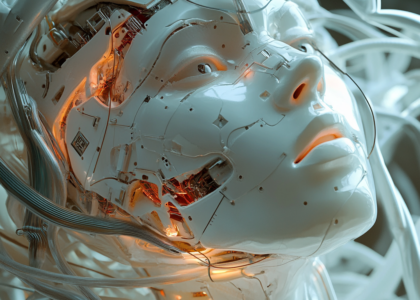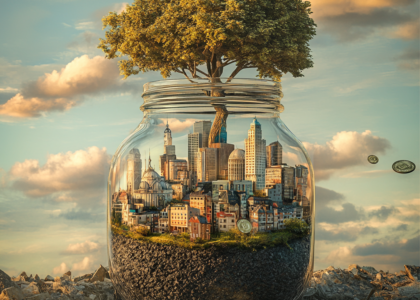The fundamental dilemma of our era can be found in Axel Kaiser’s first lesson in “The Street Economist.” His premise “To work is to live” develops into a deep reflection:
“A good street economist understands that the fundamental problem of human existence is economic. This statement may be very unromantic, even materialistic, and may seem absurd to those who maintain that spiritual life, affections, or intellect are more important than mere economics. But when we say that the economic aspect is paramount to human existence, we affirm that, to live, the first thing we must resolve is the scarcity of resources. Eating, for example, is an economic matter, as it involves obtaining or creating resources to subsist. Everything else depends on this, including cultural and spiritual life. Without food, we will perish in a short time. Food is a scarce resource, which is not found unlimited like the air we breathe and obtain without any effort. Therefore, air is not an economic resource, although it is equally or even more important than food.”
This economic reality has defined our existence since the dawn of humanity, evolving from scavenging leftovers to our current structured work system. However, we find ourselves on the threshold of a radical transformation, as Kaiser himself anticipates:
“If in the future artificial intelligence allows for producing sufficient quantities of resources, eventually the economic problem could be solved and no one would have to work. Everyone could dedicate themselves to recreational activities because the resources to cover material needs would be available thanks to production by machines.”
The technological singularity presents itself as the catalyst for this transformation, where artificial intelligence will surpass human capabilities, initiating an unprecedented cycle of self-improvement. Perspectives on this future are sharply divided between optimism and caution.
The Glass Half Full
In the optimistic camp, Ben Goertzel proposes a revolutionary vision. In his interview with Joshua Jake for Discover Crypto, he states that “we are going to create machines smarter than us, we are going to create molecular machines that will allow us to basically 3D print any form of matter we want, and we are going to abolish involuntary death and cure aging.”
His vision includes specific technical safeguards:
“If all the software running the world and all the hardware on which that software runs is written in a way that can be mathematically proven by an automated theorem verifier, and if the formal verifier is proven to work correctly, with a committee of thousands of experts verifying that the verifier is working properly, then you would have a world economy where access to resources like computing time, raw materials, and construction robots would be protected by this formally verified infrastructure.”
The Glass Half Empty
Critical voices present equally well-founded concerns. Stephen Hawking warned that “the development of full artificial intelligence could spell the end of humanity,” while Elon Musk has actively promoted research on the social impacts of AI.
Yuval Noah Harari perhaps offers the most revealing metaphor of our time, comparing the advent of AI to mass immigration, but not from the Rio Grande, rather from Silicon Valley. This “technological immigration” will fundamentally transform not only manual jobs but all spheres of human activity, from banking to government, bringing with it a completely different way of organizing society.
The central paradox of this transformation lies in that, while we free ourselves from traditional work, we face fundamental questions about resource distribution and the very purpose of human existence in a post-work era. The technology that promises to liberate us could also fundamentally redefine what it means to be human in the 21st century.






